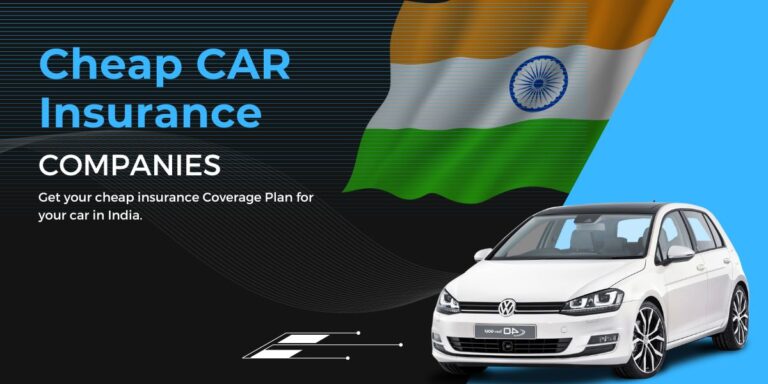When it comes to buying a car, different types of buyers have distinct needs and priorities. For instance, first-time buyers are often focused on affordability and reliability.
They need to research the total cost of ownership, including insurance, maintenance, and fuel efficiency.
It’s crucial for them to choose a vehicle with a strong reputation for dependability and low running costs.
Types of Car Buyer’s
Each type of car buyer should conduct thorough research and consider their specific needs and priorities before making a decision.
Whether it’s budget constraints, safety requirements, daily commute efficiency, or environmental impact, understanding these factors will help them choose a car that best fits their lifestyle and preferences.
Families
Families typically prioritize safety, space, and comfort. They should look for cars with high safety ratings, ample seating, and cargo space.
Features like child safety locks, ample airbags, and advanced driver assistance systems (ADAS) are essential considerations.
They might also want to explore vehicles with good fuel economy to manage long-term costs effectively.
Commuters
Commuters usually seek fuel efficiency and comfort.
They need to evaluate the car’s mileage, ergonomics, and connectivity features, such as Bluetooth and navigation systems, to enhance their daily driving experience.
A reliable vehicle with low running costs is ideal for those who drive long distances regularly.
Car enthusiasts
Car enthusiasts often prioritize performance, style, and advanced features.
They need to pay attention to the car’s engine power, handling, and available customizations.
It’s also important for them to consider the long-term value and potential resale price of high-performance vehicles.
Eco-conscious buyers
Eco-conscious buyers focus on fuel efficiency and environmental impact.
They should explore hybrid and electric vehicles (EVs) that offer lower emissions and higher efficiency.
Understanding the availability of charging stations and the range of EVs is also critical for these buyers.
Never Buy a Car Without Knowing These Factors

Buying a car is a big decision, and it’s important to be well-informed to avoid any regrets later.
By knowing these key things you can pick a car that’s affordable, safe, reliable, and fits your lifestyle.
Spending time to research and think about these factors will help you make a smart and confident choice.
1. Total Cost of Ownership (TCO)
When purchasing a car, it’s essential to consider not just the purchase price but the total cost of ownership.
This includes ongoing expenses such as insurance, fuel, maintenance, taxes, and depreciation.
Often, cars with lower initial prices may have higher long-term costs due to poor fuel economy, expensive repairs, or steep depreciation rates.
2. Vehicle History (For Used Cars)
If you’re considering a used car, knowing its history is crucial.
Obtain a vehicle history report from services like Carfax or AutoCheck to check for past accidents, title issues, or odometer discrepancies.
This report can reveal potential red flags that may affect the car’s safety, reliability, and resale value.
3. Reliability and Reviews
Research the car’s reliability ratings from trusted sources like Consumer Reports, J.D. Power, and online owner reviews.
A car known for frequent breakdowns or expensive repairs can be a financial burden and cause significant inconvenience.
Reviews from current or past owners can provide insight into common issues and overall satisfaction with the vehicle.
4. Safety Ratings
Safety should be a top priority when buying a car.
Check the safety ratings from organizations such as the National Highway Traffic Safety Administration (NHTSA) and the Insurance Institute for Highway Safety (IIHS).
Look for cars with high ratings in crash tests and advanced safety features like anti-lock brakes, airbags, stability control, and driver assistance technologies.
5. Financing Options
Understanding your financing options is crucial before purchasing a car.
Shop around for the best interest rates and loan terms from banks, credit unions, and dealerships.
Be aware of the total cost of the loan, including interest over the life of the loan.
A lower monthly payment might seem attractive, but it could mean a longer loan term and higher overall cost.
6. Warranty and Service Plans
Know the details of the car’s warranty and any available service plans.
A good warranty can save you significant money on repairs and maintenance.
Understand what the warranty covers, the duration, and any limitations.
For used cars, certified pre-owned (CPO) programs often come with extended warranties and thorough inspections.
7. Test Drive
Never skip the test drive. It’s essential to get a feel for the car’s performance, comfort, and features.
Pay attention to the car’s handling, acceleration, braking, and overall driving experience.
Ensure the car meets your comfort standards, has good visibility, and that all features and controls are intuitive and functional.
8. Vehicle Inspection (For Used Cars)
For used cars, consider having a trusted mechanic perform a pre-purchase inspection.
They can identify potential mechanical issues, signs of wear and tear, or previous damage that may not be evident from a visual inspection or test drive.
9. Resale Value
Consider the car’s potential resale value.
Some cars retain their value better than others due to brand reputation, reliability, and demand.
Research the resale values of similar models from past years to gauge how well the car is likely to hold its value over time.
10. Your Needs and Lifestyle
Lastly, ensure the car fits your needs and lifestyle.
Consider factors like the size and type of the vehicle, fuel efficiency, cargo space, seating capacity, and any specific features that are important to you.
Your car should complement your daily routine and long-term plans, whether it’s for commuting, family use, or recreational purposes.
Conclusion
If you buy a car without the necessary information, it’s like buying a shiny object that’s actually full of problems.
Imagine you drive off the lot with a great car, only to find that it’s a “rusty car” that constantly breaks down, costs too much to repair and doesn’t have the safety features you need.
You may incur unexpected expenses, have to visit the mechanic multiple times and regret your purchase.
It’s important to do your homework to avoid turning your dream car into a nightmare.

Hey, I’m Ratiranjan Singha, the Creator of Myworldstuffs.com. I Offer in-Depth Articles and Guides that Help you to Understand Various Financial Concepts.










